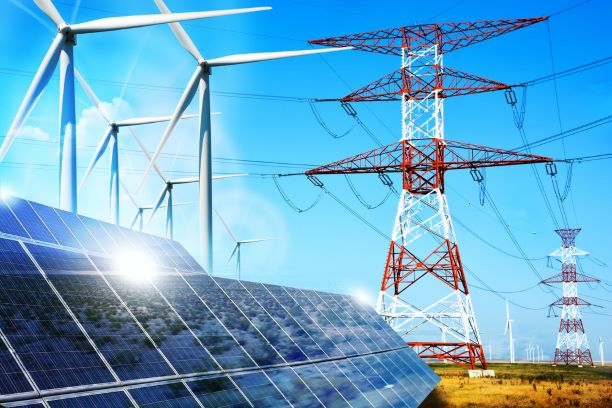

The Ministry of Power, in its latest revision of guidelines for the import and export of electricity and power trading with neighboring countries, have added Renewable Power in the mix.
The 2018 “Guidelines on Cross-Border Trade of Electricity” supersedes Guidelines on Cross-Border Trade of Electricity issued by the Ministry of Power on 5th December 2016.
The objective of the new 2018 guidelines remains the same as the previous one – “to facilitate and promote cross-border trade of electricity, developing a dynamic and robust electricity infrastructure for import and export of electricity and reliable grid operation and transmission of electricity.”
The text of the guidelines clearly mentions: “Generating Companies/ Distribution Companies of India may export electricity generated by coal or renewable energy or hydropower, to Entities of neighboring country(ies) directly or through trading licensee(s) of India…”
The Guidelines also add: “Any Indian power trader may, after obtaining approval from the designated Authority, trade in Indian Power Exchanges on behalf of any Entity of neighboring country, for specified quantum as provided in the Approval and complying with CERC Regulations.”


This change in regulations has opened up a whole new market especially for renewable energy developers who have been in a quagmire to sell power to the DISCOMs owing to lack of demand. States such as Gujarat or Madhya Pradesh have seen a slowdown in renewable energy growth because of surplus supply and a lack of demand for additional capacity.
Earlier 2016 guideline gave importance to projects with government investments of respective countries. According to the regulation, companies which were fully owned by the governments of the concerned countries and those having 51 percent equity investment of Indian public and private companies could export power to the Indian market after obtaining one-time approval from the Indian authorities. Any other power generators needed to obtain approval on a case by case basis. This preferential treatment has now been removed.
The development bodes well with the recent treaty in September with Nepal for commissioning of the high-voltage 220 KV Dhalkebar substation. Cross-Border Trade of Electricity has been taking place with neighboring countries like Bangladesh, Bhutan, and Nepal under bilateral MoUs/power trade agreements. India is working to gradually strengthened its position as an electricity exporting nation to others as well.
[related_post]
In a significant move toward advancing green energy and industrial growth in the state, Himachal…
Golabl chemical conglomerate BASF has announced that its now offering the world’s first biomass-balanced polyethersulfone…
In a crucial stint to bolster the biogas sector and sustainable dairying in the country,…
TotalEnergies SE has received approval to proceed with its Middlebrook solar and battery project in…
Andhra Pradesh Chief Minister Chandrababu Naidu has inaugurated the Rs 1,000-crore green hydrogen plant of…
The BITS Pilani has developed an innovative solution for managing landfill leachate, domestic septage, and…